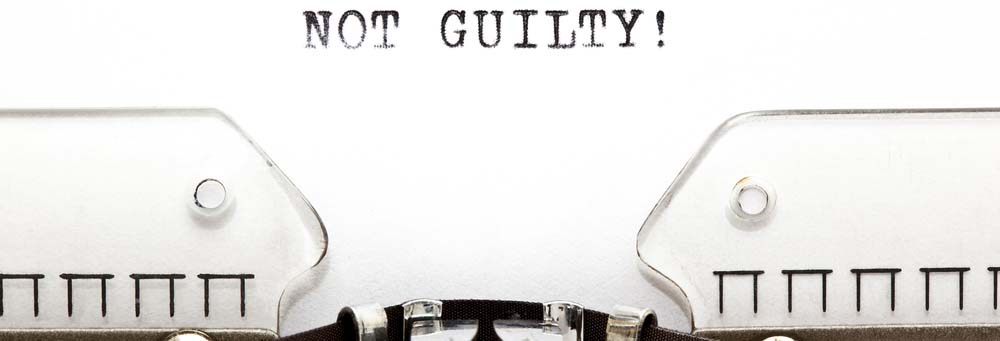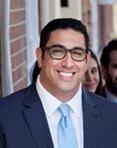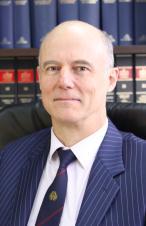Contact Us
KOGARAH OFFICE
Suite 309 – 310, Level 3
13A Montgomery Street
KOGARAH NSW 2217
SYDNEY CITY OFFICE
Ground Floor
54 Martin Place
SYDNEY NSW 2000
Email: solicitors@gmhlegal.com
Phone: (02) 9587 0458
Facsimile: (02) 9587 2936
CRIMINAL TRIALS
A criminal case is a case to decide whether a person who has been charged is guilty of a crime or other offence with the majority of criminal cases in NSW first come before the NSW Local Court. Juries are not used in the Local Court.
Less serious criminal cases, sometimes called summary cases, are typically dealt with by the NSW Local Court alone. Less serious criminal cases include those where a person has received a penalty or infringement notice or a fine and has chosen to have the matter heard by a court.
Most Local Court criminal cases are determined by a magistrate.
If you are on bail, you must attend court unless the court has excused you. If you are not on bail, you can choose not to attend court if you file a written notice of pleading. You can read more information about submitting a written notice of pleading in Going to court for a criminal case.
The person alleged to have committed the offence will enter a plea of guilty or not guilty. If a plea of guilty is entered, the court will decide the penalty to impose and the case wil be finalised. If a plea of not guilty is entered witnesses will be called to give evidence. A magistrate will decide if the person is guilty or not guilty. If the person is found to be guilty the court will decide the penalty.
There are serious crimes that cannot be finalised by the Local Court. In these cases, the Local Court will conduct a hearing called a committal hearing. The role of the magistrate in committal hearings is to determine whether the prosecution evidence is capable of satisfying a jury, beyond reasonable doubt, that the accused person has committed an indictable offence.
If the magistrate is satisfied that the evidence is capable of satisfying a jury, the person is committed for trial or sentence to a higher court (either the District Court or the Supreme Court, depending on the offences). Cases committed to a higher court are then determined by a judge and jury.
CRIMINAL TRIALS
The purpose of a trial is to put all relevant and admissible evidence before the Court. It is then for the Jury (or Judge in judge-alone trial) to decide whether the Prosecution has proved the guilt of the accused person beyond all reasonable doubt.
ROLES IN COURT
There are many people involved in the Court system. Below is a list of people you might meet if you are required to attend Court:
Accused
- Person against whom a criminal case is brought – sometimes referred to as the defendant.
- The Accused has no obligation to call evidence or to prove anything
Prosecutor
- Person who represents the Crown and acts on behalf of the State or the Commonwealth to prosecute the crime in Court.
- He/she will present evidence and arguments to the Court in support of the victim’s case.
Their role is to prove beyond reasonable doubt that the Accused is guilty of the offence.
Defence Solicitor/ Duty Solicitor
- Person who represents the accused in Court.
- He/she will present evidence and argument to the Court in support of the Defence case.
- If the accused does not have a Solicitor, he/she may be entitled to representation by a duty Solicitor.
- Person who oversees the conduct of the trial, rules on admissibility of evidence and points of law.
- If case is heard by a judge and a jury, the judge will be responsible for directing the jury about the law.
- If the accused is found guilty, the judge will impose a sentence.
- A jury hears evidence, applies the law as directed by the Judge and decides if a person is guilty or not guilty of a crime, based on the facts.
- A jury does not participate in the sentencing process.
- Between 12-15 jurors are selected to be on a jury based on the expected length of the trial.
Judge
Jury
COURT JURISDICTION
All criminal cases are first mentioned in the Magistrate Court, but how a case proceeds (i.e. which court the case is heard in), depends on the type of offence and whether the offender pleads guilty or not guilty.
Offences tried in the District Court:
- Offences against the person
- Assaults
- Sexual assaults
- Driving, licensing and vehicle registration offences
- Property offences
- Drug offences
- Fraud
Offences tried in the Supreme Court:
- Murder and manslaughter
- Attempted murder
- Major conspiracy and drug related charges
- Commonwealth prosecutions for the more serious breaches of Corporation law
PRE-TRIAL PROCEDURES
Arraignment
Arraignment is a formal reading of a criminal charging document in the presence of the defendant to inform the defendant of the charges against him/her.
In response to arraignment, the accused is expected to enter a plea:
Pleading guilty
- If the accused pleads guilty, the matter proceeds to sentencing
- The accused will be given a sentence hearing date
Pleading not guilty
- If the accused pleads not guilty, the matter will be listed for a hearing
- If the Prosecution and the Defence Solicitor are both present at the time the not guilty plea is entered, a trial date will be fixed immediately.
For more information about the defendant’s plea, please refer the NSW Attorney General’s website.
Jury selection
As mentioned in the table above, a jury hears evidence, applies the law as directed by the Judge and decides if a person is guilty or not guilty of a crime, based on the facts. A jury does not participate in the sentencing process.
In most criminal trials, 12 people are selected to be on the jury. Up to 15 jurors can be empanelled (i.e. chosen for a specific trial) if a trial is expected to last longer than three months.
The jury roll is a list of names of people, randomly selected by computer from the NSW Electoral Roll. Anyone registered as a voter in NSW can be included on the jury roll and called up for jury service.
If you have been sent a Notice of Inclusion it means that during the next 12 months you may receive by mail a jury summons asking you to go to Court.
Can I be exempt from jury service?
Individuals entitled to claim exemption based on their occupation include:
- Clergy
- Members of any religious order who are under vows
- Medical practitioners, dentists and pharmacists who are currently in practice
- People employed by fire, ambulance, rescue or other emergency services (except part-time or voluntary workers)
- people who have served as jurors within the past three years
- People summoned for jury service, who were available and prepared to serve as jurors
- People entitled to be exempted because of previous lengthy jury service
- A person who resides with and has the full time care of a sick, infirm or disabled person.
within the past 12 months, but did not serve as jurors (i.e. not selected)
Individuals holding specific high State of Commonwealth office or public sector roles relating to the Courts or justice systems are also exempt. Please see detailed list of occupations here.
For more information about jury service exemption, please contact the NSW Attorney-General’s Office or the Juror Information Line at 1300 722 574.
Empanelling a jury
Once the trial is ready to commence, potential jurors are taken in groups into the Courtroom where the members of the jury will be selected.
The judge’s associate will draw out juror numbers from a ballot box, if your number is called you will be asked to take a seat in the jury box.
Please note that both the Prosecution and the Defence can challenge (reject) a juror without giving reasons.
Once there is a full panel of jurors, each person who has been selected is asked to take an oath or an affirmation to carry out his or her task faithfully and impartially.
Trials can last days, weeks or months. However in NSW the average length in seven days.
For more information about jury selection, please visit the NSW Attorney General’s website.
WHAT HAPPENS DURING CRIMINAL TRIALS?
If the accused pleads not guilty, a trial by judge and jury will generally involve the following events and procedures:
- Selection of the jury
- Prosecution outlines the case against the accused (opening statement)
- Prosecution calls witnesses to give evidence
- Prosecution questions the witnesses (evidence in chief)
- Defence questions the witnesses called by the Prosecution (cross-examination)
- Prosecution may once again question its own witnesses to clarify evidence which was given in cross examination (re-examination)
- Defence presents its case and makes opening statement
- Defence calls witnesses to give evidence
- Defence questions the witnesses (evidence in chief)
- Prosecution can question the witnesses called by the Defence (cross-examination)
- Defence may once again question its own witnesses to clarify evidence which was given in cross-examination (re-examination).
- Prosecution makes its final submission/addresses to the jury
- Defence makes its final submission/addresses to the jury
- Judge summarizes the whole case to the jury – he/she instructs the jury about matters of law relevant to the case and identifies factual issues that the jury will have to consider.
- The jury leaves the courtroom to consider the evidence and to reach a verdict.
- If the jury’s verdict is not guilty, the accused is said to have been acquitted
- If the jury’s verdict is guilty, the accused is said to have been convicted (offender)
- The offender will be sentenced by the judge.
CRIMINAL TRIALS AND MENTAL HEALTH
A fair criminal trial requires the defendant’s understanding of the trial proceedings, ability to participate in the proceedings and ability to defend himself/herself.
It is the person’s fitness at the time of the trial that is relevant to question of fitness to stand trial, not the person’s fitness at the time of the offence.
The question of the accused’s fitness to stand trial can be raised at any time during the proceedings, but it is usually raised before arraignment.
How is the accused’s fitness to stand trial determined?
The person’s fitness is determined by a judge or a jury assembled for the inquiry, with the determination of fitness being based on the balance of probabilities. The Court may call for a medical examination to be conducted and reports to be presented to assist in making their decision.
What happens if the accused is found fit/unfit to be tried?
If the accused is found fit to be tried, the criminal proceedings recommence in the usual manner.
If the accused unfit to be tried, he/she is referred to the Mental Health Review Tribunal to determine whether he/she is likely to become fit to be tried over the next 12-month period.
If the accused is likely to become fit to be tried within the next 12 months, the Court can arrange for treatment and either bail or detention. However, if the accused is unlikely to become fit to be tried within the next 12 months, a special hearing must be held.
What is a special hearing?
A special hearing is conducted in a way which is as close to a normal criminal trial as possible, and the defendant can raise any defence that could be used at an ordinary hearing.
At a special hearing the accused is taken to have pleaded not guilty and must be acquitted unless it is proved on the limited evidence available that the accused committed the offence.
If the offence is proven and the Court indicates that it would have imposed a sentence of imprisonment, the Court must nominate a ‘limited term’. Such term is the Court’s best estimate of the sentence that would have been ordered if the case went to normal trial.
Upon receiving a limited term, the offender becomes a ‘forensic patient’ and can be detained in hospital until a recommendation for release is made by the Tribunal and approved by the Minister for Health.
For more information on fitness to stand trial please refer to Lawlink’s publication entitled ‘Mental Health and the Criminal Justice System’.
Call the experienced team at GMH Legal to assist you in your matter.
A free consultation with GMH Legal is an opportunity to gain deep insights into your legal situation and all of your options.
Why Choose GMH Legal?
- Over 60 years of combined legal experience
- Outstanding track record with a winning approach
- First appointment is always free
- Meet our team now.






